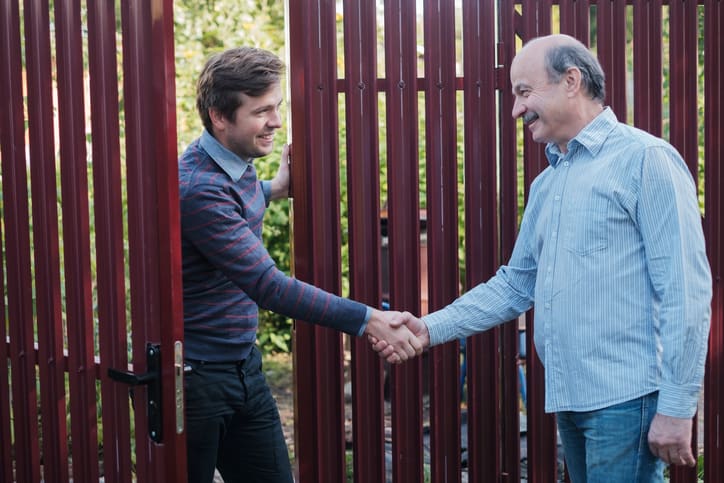Bleary-eyed, I nudged the suitcase with my right foot, moving it a few inches ahead. The airport terminal at Ben Gurion was beginning to fill up and I was anxious to check in my baggage. I was next in line for the security check. There was a man who hurried in, making his way to the back of the line. I noticed he was unshaven with the same mournful look in his eyes that I had. Two obviously close relatives were escorting him, with clear and open affection. I was lulled out of my observations by a crisp voice.
“Sir, may I please see your passport?” said the efficient Israeli security staffer, greeting me with a smile.
“Yes, of course,” I replied, producing it along with my airline ticket and handing it to her.
“Where are you coming from?”
“Yerushalayim.”
“What brought you to Israel?” she said as she scanned the documents expertly, not looking up.
“My father passed away here in Israel, and I flew in to sit shiva,” I replied, my own voice sounding disembodied and shaky. Her head shot up, and she looked at me sympathetically.
“I am very sorry,” she said.
I believed her.
“Thank you,” I said quietly.
“Has anyone but you packed your bags?”
“No.”
“Have you been with your baggage from the time you left Yerushalayaim?”
“Yes.”
“Do you understand why I am asking all these questions?”
“Yes.”
“OK,” she said, scribbling on little green stickers before putting them on my luggage. “You may go to the ticket counter. Have a pleasant flight. And I am very sorry about your father.”
“Thank you,” I said, but I was already turning my head toward the unshaven man. I sensed a connection with him, although I was sure I’d never seen him before. He now stood alone in the line, preoccupied with his thoughts, just as I was. I wanted to talk to him, but it didn’t seem appropriate somehow. I checked in my baggage and went upstairs, through passport control.
I saw him again sometime later. He avoided my glances, running his hand over the growing stubble he hadn’t gotten used to. All the signs were there; I knew why he had come.
When the boarding call was made, I made certain to line up near the unshaven man, my instinct to reach out to him too strong to suppress. We soon stood side by side.
“Bahta Levikur? – here for a visit?” I asked him.
“Aizeh bikur – some visit,” he replied with some bitterness, looking at me for the first time. “Ima sheli nifterah – my mother died,” he continued.
Our eyes remained locked.
“Mitzta’er – I’m sorry,” I said sadly.
Maybe it was the look in my eyes that he suddenly noticed.
Maybe it was the way I ran my hand over my stubble.
“Mah ateh oseh po – what are you doing here?” he asked quickly, sensing the answer.
“Abba sheli…” was all I could manage to say before choking up.
We stared at each other in silence, eyes moistened, both of us fighting the need to cry. Finally, I put one arm around him and wished him the traditional phrase of comfort. He did the same to me. As we went down the steps together, towards the tarmac to our waiting bus, we exchanged some of the heartbreaking details leading up to our respective losses. The bus arrived and we boarded. We stood together, arriving moments later under the belly of a 747-400, fueled and ready to transport us back to another world.
We wished each other the best. “Be well. May you have a very happy life from now on,” we told each other. We tried to smile bravely, communicating volumes of empathy through mere eye contact. I knew I’d never see him again. But it didn’t matter; I had shared some comfort with a new brother.
This article originally appeared in Hamodia.
Shlomo Horwitz is the founding director of Jewish Crossroads, an educational theater project that has provided creative Torah programming across the US, Canada, England and Israel. He studied at Yeshivat Shaalvim and Yeshivat Ner Yisrael in Baltimore, where he received ordination from Rabbi Yaakov Weinberg. Shlomo is a CPA and a director of a consulting firm near Washington, DC. He can be reached through his site, www.jewishcrossroads.com.
The words of this author reflect his/her own opinions and do not necessarily represent the official position of the Orthodox Union.
